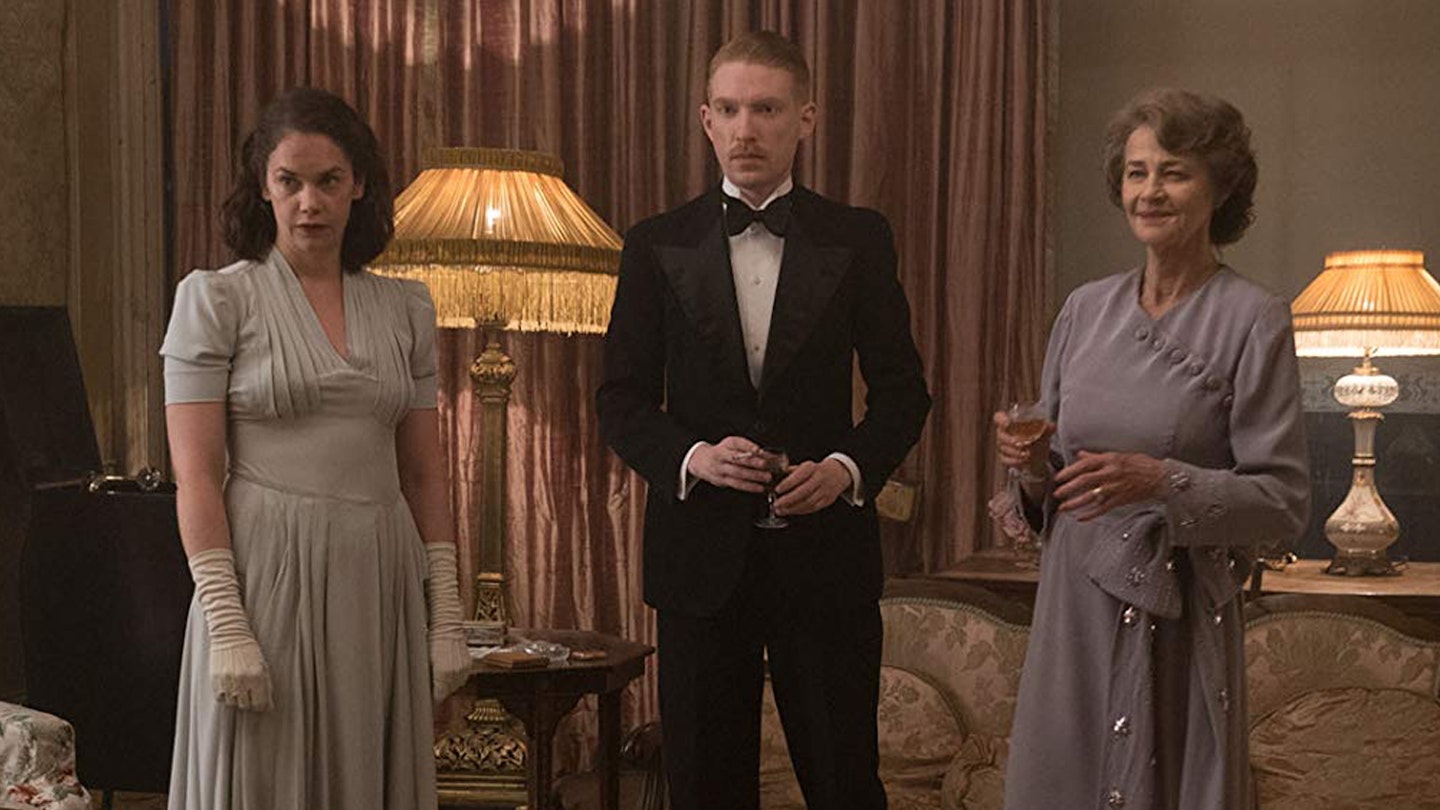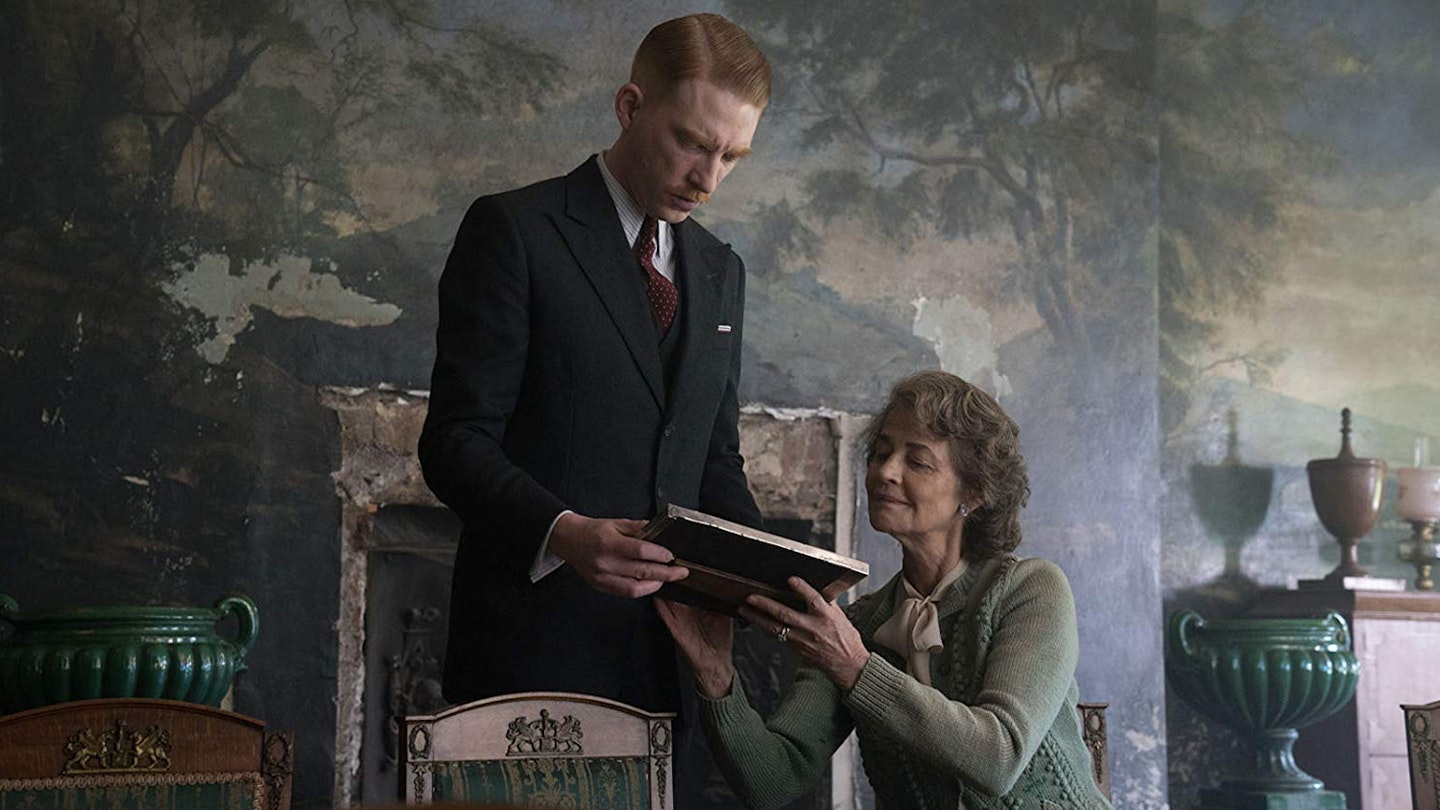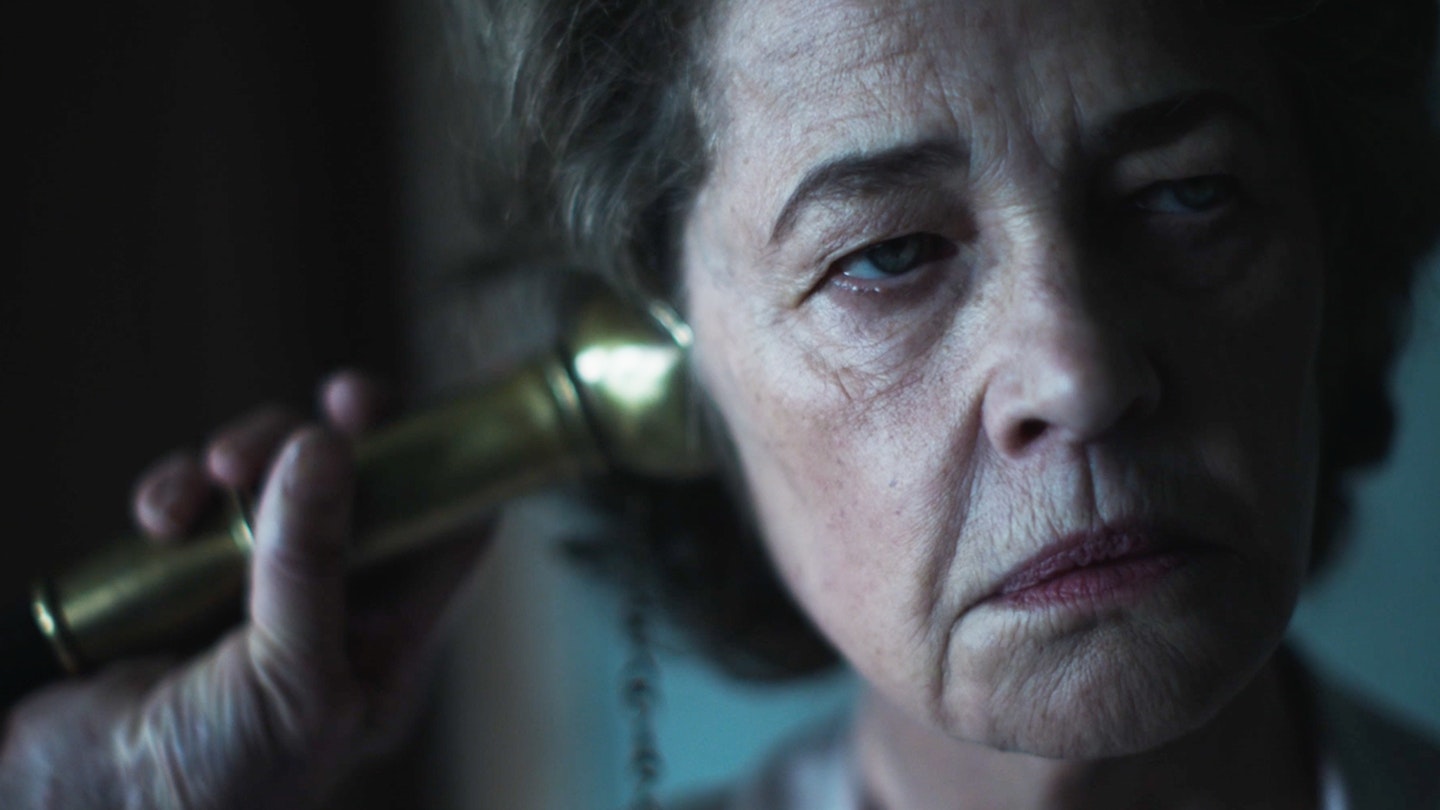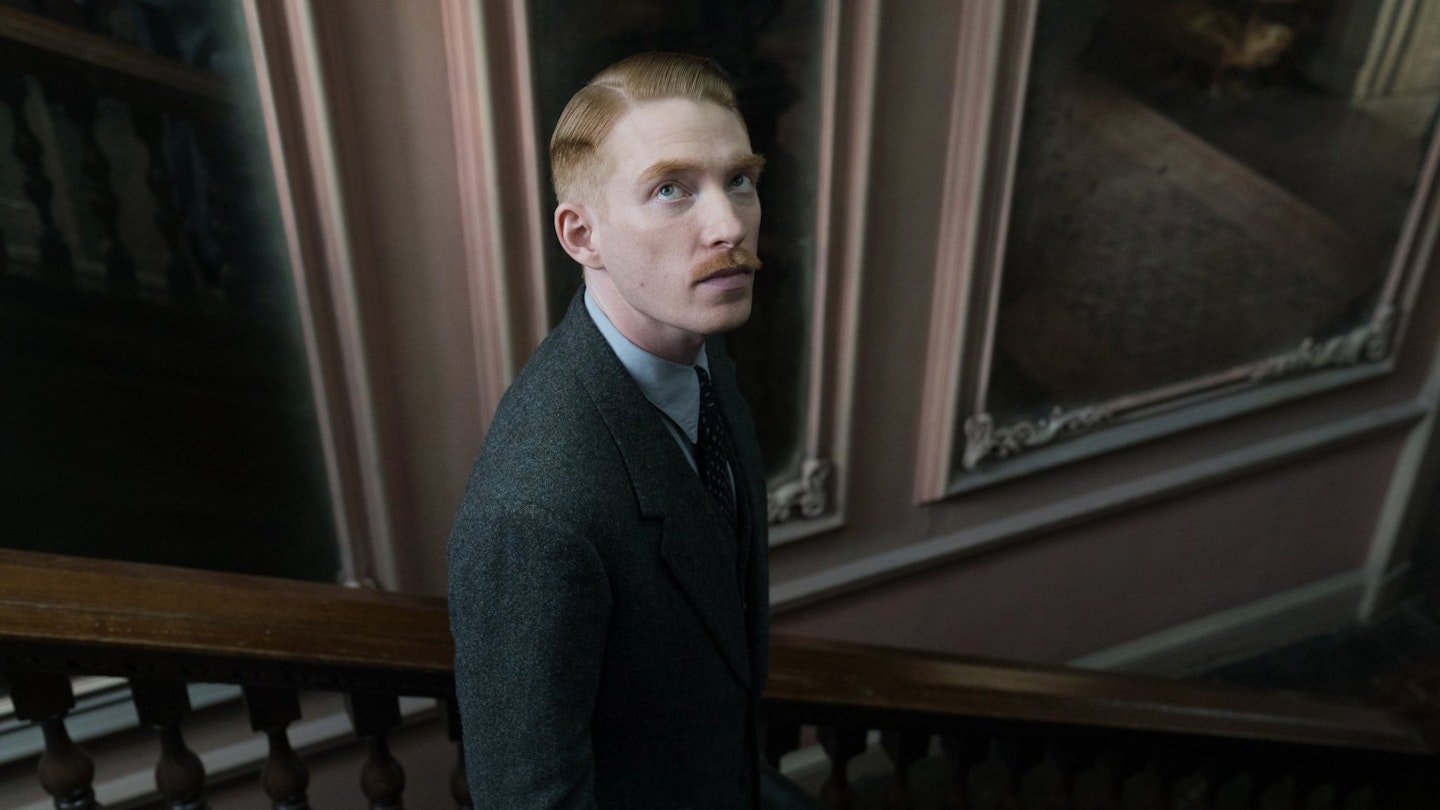Adapting a Booker Prize-shortlisted novel seems like a surprisingly safe choice for Lenny Abrahamson, after the confines of Room and the subversive weirdness of Frank. But there’s something strange and slippery about his adaptation of Sarah Waters’ The Little Stranger that reveals it to be a better fit for the director than you’d imagine — something off-kilter and unsettling, even if it isn’t quite up to his best work.

Domhnall Gleeson is on brittle-accented, reined-in form as Faraday, the young doctor who takes a post in the small town where he once grew up. Nearby is Hundreds Hall, and Faraday is called to the estate to examine housemaid Betty (Liv Hill), who has apparently experienced ghostly goings-on. But it’s badly burned war veteran Roderick Ayers (Poulter) and his sister Caroline (Wilson) who catch his attention. Faraday treats Roderick’s wounds and befriends the lonely Caroline, making himself indispensable. Still, as the son of a former servant, he wonders if he can he ever belong among the gentry.
The cast are superb, but with characters this stiff there are only glimpses of emotion.
This is a film that’s as much about class, then, as about ghosts, and it’s at its best when dealing with insecurity. Faraday hungers for Hundreds Hall in a way he can’t quite voice, and that extends to its residents. Roderick — angry, unpredictable and in pain — is caught between his duty to the estate and a creeping sense that it’s doomed whatever he does. Caroline gave up her own life to care for her wounded brother and now seems destined for spinsterhood. And their mother Mrs Ayers (Rampling) prefers to live in the past, covering up the house’s crumbling edges to throw sparsely attended parties.
Whether or not there really is a malignant ghost in the manor — a question the film tackles more explicitly than the book — this is a family haunted by the long-ago death of Mrs Ayers’ elder daughter Susan, and by their own glorious past. Hundreds Hall is an empty pile doomed to decline as more egalitarian times dawn, and its inhabitants, especially Caroline, are brutally aware of that fact. Only Faraday romanticises the Hall, perhaps because he doesn’t have to pay the bills.
As the old pile enters its final chapter, Abrahamson finds creepy texture in its peeling paint and battered wood, and Ole Bratt Birkeland’s cinematography creates an effectively chilly atmosphere. But it’s perhaps a little too cold to draw us in. The cast are all superb, but with characters this stiff, and stiff-upper-lipped, there are only glimpses of emotion to keep us engaged in this gothic tale. It’s not until relatively late in the story that we realise the depths of their desires, or the destructive power that they hold.



